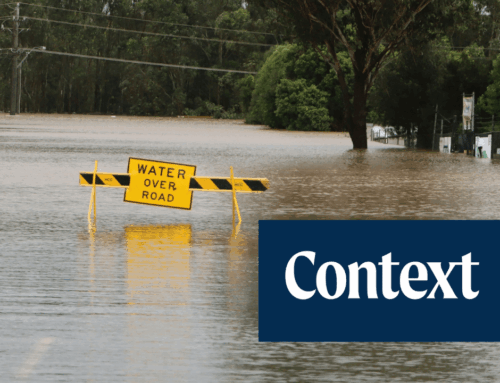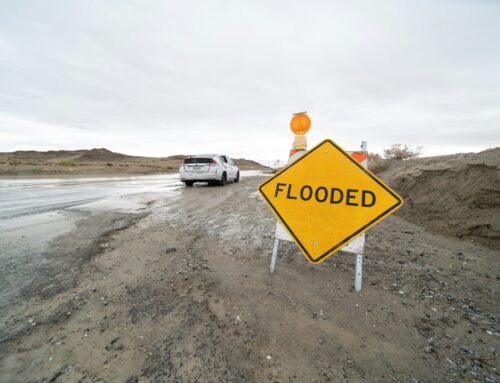Most people don’t normally associate the Securities Exchange Commission (SEC) with climate policy. But on March 21, the SEC proposed a rule change that would require companies to report on climate-related risks, climate-related goals or targets, and greenhouse gas (GHG) emissions. It’s a bit controversial, but this approach is also needed to understand the true cost of climate change for companies, investors, and also taxpayers. Better understanding of those costs and drivers will help reduce future taxpayer costs to combat and adapt to climate change. We submitted comments on this rule earlier this week.
The SEC was created after the stock market crash of 1929 to safeguard investors from fraud and unfair sales practices. Today, the agency is also charged with facilitating capital formation and maintaining “fair, orderly, and efficient markets.” According to SEC Chair Gary Gensler, “climate risks can pose significant financial risks to companies, and investors need reliable information about climate risks to make informed investment decisions.” Many companies already provide voluntary reports on climate data, but this proposed rule would be the first to require climate-related disclosures.
The rule would require companies to report on climate risks they have identified, and how they intend to manage these risks. Companies must also describe how climate risks impact their business model and finances, and the impact of climate events, such as severe weather. They also must report greenhouse gas emissions (GHG), direct and indirect, and in some cases upstream and downstream.
For an agency that rarely makes headlines, the proposal has provoked a public debate on the role of the SEC and the costs and risks of climate change. The rule has sparked backlash from some groups who say the agency is overstepping its mandate and that the rule would create an unnecessary reporting burden for companies. Others defend the proposed rule as a necessary step to help investors and companies to better tackle climate-related risks. We believe it will help illuminate the costs of climate change, something we all need to know more about.
The costs for taxpayers of natural disasters, including larger subsidies to the agriculture industry, are skyrocketing and only expected to increase. As the Congressional Budget Office puts it: “Climate change increases federal budget deficits.” Many companies have responded to increased pressure from consumers and investors to better prepare for the impacts of climate change and limit their own contribution to the crisis by reducing GHG emissions. However, without required disclosures, it is difficult to hold companies accountable to these climate pledges. In the proposed rule, the SEC states that, “despite the numerous commitments to reduce GHG emissions, according to several sources, many companies do not provide their investors with sufficient information to understand how the companies intend to achieve those commitments or the progress made regarding them.”
In our comments to the SEC, we wrote that: “Disclosure of emissions along the lines of what the proposed rule suggests would allow us to better understand where GHG emissions come from and how both individual companies and whole industries affect taxpayers through their contributions to climate change. … By understanding who is contributing to climate change, policymakers can work to ensure that responsible parties, not taxpayers, address the impacts that they have caused to people and to communities.”
The costs incurred by companies to gather and report this information is not negligible. However, planning for and mitigating climate related risks is something most companies are or should already be doing. Moreover, assembling a broader picture of corporate climate risks and mitigation strategies is valuable to the public and these same companies. Climate change is now a feature of the world we live in and planning for it makes good business sense. And, like it or not, these companies should be held accountable for their contribution to the climate costs we are all paying. Informed consumers and investors can be a powerful tool in the fight to bring down these costs. And that is big win for taxpayers.
The SEC’s proposed rule is a positive step in increasing accountability for industries with a role to play in climate change and in improving our country’s ability to tackle the growing costs of climate change.










